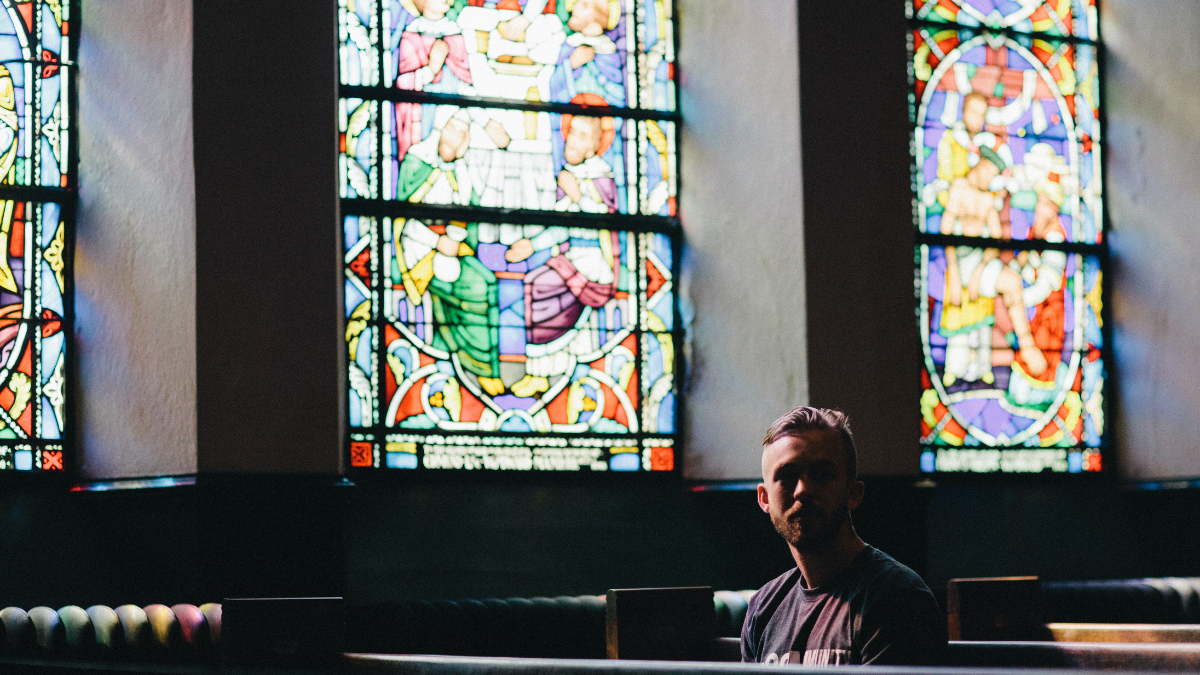

The Rise and Fall of Evangelical America: Lasting Faith Needs Deeper Soil
Perhaps, given how quickly the evangelical bubble burst, part of the problem was that it was filled with shallow belief.
07/25/23
John Stonestreet Shane Morris

In the parable of the sower, Jesus illustrated how the seed of God’s Word flourishes or perishes depending on the kind of ground it falls on. Some seeds fell on a path, and birds ate them. Some fell among thorns, which grew up and choked the seedlings. “Other seeds,” said Jesus, “fell on rocky ground, where they did not have much soil, and immediately they sprang up, since they had no depth of soil, but when the sun rose they were scorched. And since they had no root, they withered away.”
That rocky soil group aptly describes the rapid rise and decline of evangelicals in America in recent decades. Recently, political scientist Ryan Burge, co-author of The Great Dechurching, explained how, between 1983 and 1993, the share of Americans who identified as evangelicals exploded. In fact, at their height in the early ’90s, nearly a third of Americans called themselves evangelical.
This growth overlapped with the sharpest period of decline for mainline Protestants which, between 1975 and 1988, fell from one in three Americans to less than one in five. As Burge points out, this coincide-ence was no coincidence. Evangelical gains resulted partly from “cannibalizing” the mainline denominations. By 2018, however, those gains had withered. Evangelicals returned to their pre-1980s percentage of the population, and by all indications, are still declining today, though more slowly.
Part of the story of what happened is the rise of the “nones,” those who claim no religious affiliation. Between 1991 and today, the percentage of Americans who identify as “nones” skyrocketed from 6% to 29%. Burge calls this “the most significant shift in American society over the last thirty years.”
Of course, pointing to the rise of the “nones” is basically a way of restating the problem. The evangelical bubble of the ’80s and ’90s, as well as the longer-term decline of American Christianity, requires a fuller explanation.
Perhaps, given how quickly the evangelical bubble burst, part of the problem was that it was filled with shallow belief. Or to switch back to Jesus’ metaphor, perhaps some of the seeds that came up so quickly in the final decades of the 20th century—amid chart-topping Christian albums, huge music festivals, and sprouting non-denominational megachurches—lacked deep roots.
Of course, there is nothing wrong per se with creative outreach strategies, but Jesus never told us that the goal was to get bodies through the doors or bottoms in the chairs. It was to make disciples committed to Christ and His Kingdom—disciples who would in turn “bear much fruit.”
Given the rapid rise and fall of the evangelical crop, we might safely conclude that many of those who joined and helped it spring up so quickly had shallow roots. Overall, Christians were not cultivated with deep roots in the truth God has revealed about Himself, His world, human beings, and His plan to make all things new.
Much of that is the Holy Spirit’s work through families and the church, of course. He prepares the soil, and He gives the growth. He also gives many commands in Scripture that indicate the part we play and the responsibility we have.
One of the most important ways to ensure deep roots is through the cultivating of a worldview informed by Christian truth, something in stark contrast from sprinkling Christian encouragements on top of the world’s view. This means teaching the Bible as if it is the true account of reality, contrasting a biblical understanding of things with those widely accepted, meeting challenges from the wider culture head-on, answering tough questions about the faith, teaching Christians to take seriously Christ’s sovereignty over all of life, belonging and not merely attending church, and teaching worship as everything we do, not just when we sing.
It also means recognizing the role cultural currents play in eroding faith—especially those undermining marriage and the family. As Mary Eberstadt wrote almost 10 years ago in How the West Really Lost God, one of the most powerful forces behind secularization and the rise of the “nones” is the decline of the family. Subsequent research has only proven how right she was. If evangelicals or members of any Christian tradition want to have a future, we’re going to have to prioritize intact, stable families. After all, families not only make new people, they teach them the language and categories God uses to describe His new family—the Church.
Despite the numbers, we should always maintain hope and expect a harvest. Those who’ve turned in the last few decades from Christian belief to no belief aren’t doing well. We’re in the midst of a historic mental health crisis, and people raised without faith in God are suffering the worst of it. Religious observance, by contrast, is strongly correlated with better mental health. As helpful as therapy can be, the greatest longings of the human heart and the greatest problems of human relationships are only redeemed in Christ.
That’s why, despite evangelical decline in America, we continue to till the soil and trust the Sower, fully believing He can produce deeper roots than before and fully expecting the hundredfold harvest He described.
This Breakpoint was co-authored by Shane Morris. To help us share Breakpoint with others, leave a review on your favorite podcast app. For more resources to live like a Christian in this cultural moment, go to breakpoint.org.
Have a Follow-up Question?
Up
Next

Related Content

© Copyright 2020, All Rights Reserved.













